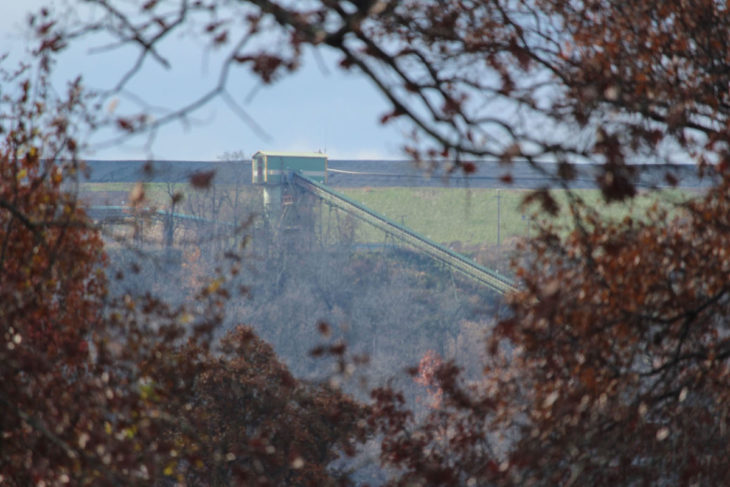 Mitchell Kendra - The Yellow Jacket
Mitchell Kendra - The Yellow Jacket The focus is simple.
When it comes to the Bailey Mine in western Greene County, State Rep. Pam Snyder, D-Greene, is primarily concerned with the economy and financial safety of families.
That’s why, for the past six to eight weeks, Snyder has been helping Consol Energy find a way to keep Bailey Mine operating, and county residents at work. To do so, she’s worked to obtain the necessary permits for Consol to mine in an area with less contention by avoiding environmental concern over waterways near Ryerson Station State Park
“Initially, there was a big issue over the 4L panel at Bailey Mine,” said Snyder, who explained that lawsuits were brought up against Consol Energy because of the technology the company was using for coal extraction beneath stream beds. “Consol had to come up with a different method to protect the stream bed…it was either cease operations or come up with a Plan B.”
The new permits are
“Plan B.”
Instead of mining near Ryerson Station State Park—an area that not more than 10 years ago underwent irreversible damage from mining practices—the permits seem to find middle ground between environmental concerns and economic growth.
The issue with the original mining location was that Consol Energy was prepared to cause irreparable damage to two streams within and around the state park—so much so that it would impair the use of the water, altogether. This is according to Veronica Coptis, executive director of the Center for Coalfield Justice—an environmental advocacy organization. The state had issued permits allowing full extraction beneath one of the streams, which Coptis’ organization decided to appeal.
The suit went before the DEP’s environmental hearing board, as permits had to be reviewed. In the meantime, Consol responded by halting production and supposedly keeping hundreds of miners from work. Coptis said these layoffs were “purely political,” – a way for Consol to speed up the board’s decision.
To remedy the situation and get miners back to work, Snyder said she worked with Consol, Gov. Tom Wolf and the DEP to find a solution: shifting focus to other areas of the mine and getting several other panels near Ryerson Station State Park approved under one permit—which will provide “stability to the mine and to workers in the mine” for up to five years.
Snyder said that this action is a monumental step for this part of the county, stretching beyond just the miners and their families.
“The school district relies heavily on the revenue of that mine… [Without it], West Greene would have to raise property taxes and that would be detrimental,” said Snyder. “And then you factor in also, that small businesses provide services to that coal mine. So, that trickle-down effect is huge.”
Snyder said she was relieved with the DEP’s ruling, and she has gotten positive feedback from community members.
“I’m very happy that it has been resolved,” she said. “I’m immensely grateful to the DEP and the governor’s office for their hard work on this issue, knowing the economic devastation it would have, had it not occurred.”
The shift in location won’t mean a free pass, Coptis said. The Center for Coalfield Justice hasn’t yet reviewed the newest developments in the permits, but Coptis said the organization is prepared to take action if necessary.
“We are reviewing the recently issued permit that authorizes Consol to conduct longwall mining in the 6L-8L panels of the Bailey Mine,” she said. “We are committed to protecting the streams in and around Ryerson Station State Park.”
While Coptis acknowledges that her group may be seen as an enemy to the coal industry—and miners by extension—she doesn’t want to see people out of work, either. Coptis agreed with Snyder about the importance of the economic stability of the area but believes we must consider all aspects of the industry’s impact on the county.
“We also don’t want to see people laid off abruptly,” said Coptis. “There is a way, and it’s feasible with proper planning by the company…to leave support by that stream and still keep people employed.”
Coptis said the main focus for the Center of Coalfield Justice is simply preventing long-term damage to the environment and making sure large mining companies like Consol Energy take responsibility for damages done to property. She also wants to facilitate economic diversity in the area, so that “when this is no longer profitable for these organizations, people are not left high and dry.”
Because despite the reprieve in this case, the future is not a coal-filled one, she said.
“The coal industry is not going to be here forever,” said Coptis.
